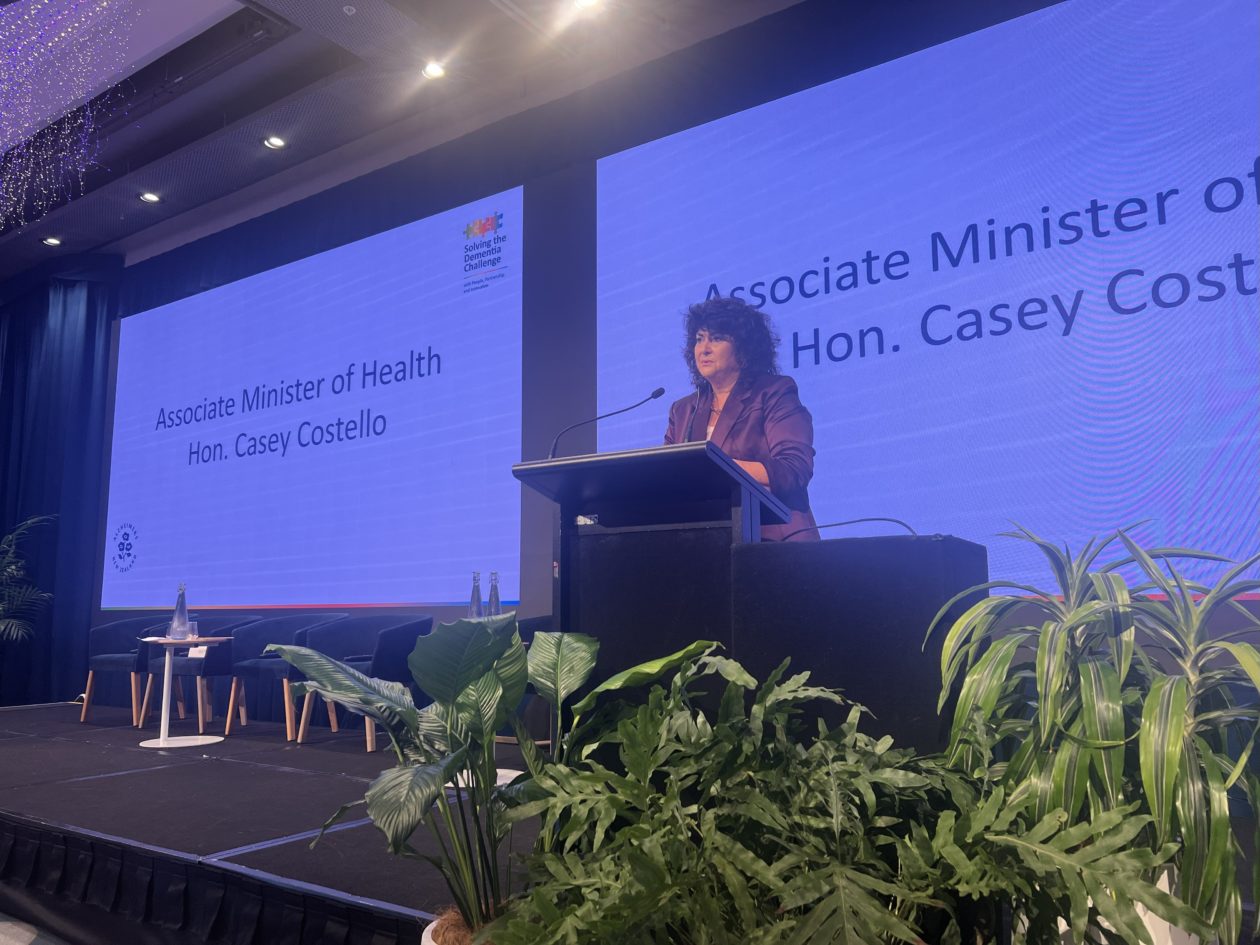Minister’s comments spark ‘cautious optimism’
Alzheimers NZ Chief Executive Catherine Hall reflects on Summit 2025 as we continue to make a case for fairer funding

It’s been one of those months! Hugely busy, but also hugely rewarding.
Let me start by referencing the speech that Minister for Seniors, and Associate Health Minister, Hon Casey Costello, made at our just completed 2025 Solving the Dementia Challenge Summit.
I, too, spoke at the Summit, re-emphasising the size and scale of the dementia mate wareware problem New Zealand faces, noting it just gets harder, every year, for people living with dementia mate wareware without support, and bemoaning the ongoing lack of Government action and adequate funding.
I highlighted the startling statistic covered in our new infographics, courtesy of the University of Auckland – that three New Zealanders develop dementia every hour at the moment – more than 500 new cases each week – and that will rise to four people an hour by 2050.
I then noted we now have a solution to this rapidly worsening problem – the refreshed Dementia Mate Wareware Action Plan 2026-31 that focuses on five specific priorities designed to reduce dementia cases, and provide better support for those living with dementia mate wareware and those supporting them – community services and the dementia workforce, both formal and informal.
This is timely as the sector recently celebrated International Day of Older Persons on 1 October and launched the Decade of Health Ageing website for New Zealand. We’re seeing an increase in interest in the ageing population in media and we’re excited that it looks like the sector is starting to gain some traction with government.
At the Summit, Minister Costello took the stage and spoke passionately, warmly and … encouragingly about the importance of ensuring older people can continue to live at home, as well as possible and as independently as possible, for as long as possible.
She spoke about the need for an integrated continuum of care with better and more navigable transitions, the need for more focus on ‘prevention’ in health care services, the value and role of community services, and the need to change the way the health system thinks about aging and health care. Take less of a focus on hospitals, and more of a focus on what services and support New Zealanders need to age well.
All things we, and the dementia sector, have been saying for many years. And sentiments echoed strongly by the WHO in this recent statement in which they urged governments “to make neurological disorders a policy priority through bold leadership and sustained investment,” and – importantly – to expand access to care.
While Minister Costello didn’t – and couldn’t – make any specific promises, she acknowledged the bleak statistics around dementia, agreed the Action Plan priorities were on target and stressed she really wanted to support the sector’s efforts.
Having said that, she also noted good intentions – even hers – only go so far, and funding for policy change is necessary – nothing happens without it.
We know that only too well. But we also know that funding our local Alzheimers and Dementia organisations properly will actually save the Government money and relieve massive pressure on the very expensive health and aged care system.
And it’s not like we are asking for a lot. It’s a very modest investment.
At the moment, contracts fund those services to the tune of just $3.50 per person per day. Funding them properly, based on the Business Case we and Dementia NZ developed jointly, would cost just $11.11 per day per person.
In response to a question about the all-important funding, Minister Costello said she, along with Health Minister, Simeon Brown, is committed to making the case for greater funding.
She said she couldn’t guarantee success, but she will be putting forward the best possible case to my colleagues.
We have never faulted Minister Costello for her willingness to engage on the issues we want to discuss with her. She has attended every event to which we have invited her, and she spoke at this, our latest conference, with a quiet passion about the need for change.
“Government can’t continue to operate in silos. We need to connect all parts of the health and aged care system, not just to keep people alive, but to help them to age well.”
Our sentiments exactly, Minister. Thank you, on behalf of the many thousands of New Zealanders living with dementia mate wareware and their care partners and whānau.
Thank you, too, for attending our Summit, and for your comments. We await with cautious optimism the outcome of your funding discussions with your Cabinet colleagues.

